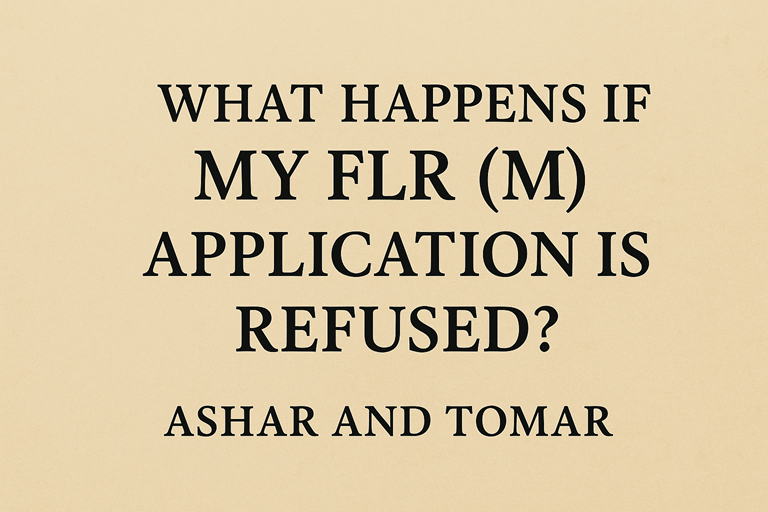Divorce and Family Law
Navigating the complexities of divorce and family law can be overwhelming. The legal landscape surrounding family disputes, divorce proceedings, and custody arrangements requires a nuanced understanding and expert guidance. Asher and Tomar, with their profound expertise in family law, offer invaluable support in addressing these sensitive issues. This article aims to provide a comprehensive overview of divorce and family law, focusing on key aspects and how Asher and Tomar can assist you through these challenging times. Understanding Divorce and Family Law Divorce and family law encompass a broad range of legal issues including marital dissolution, child custody, asset division, and spousal support. These legal matters are often intertwined with emotional and personal aspects, making the process more complex. Asher and Tomar specialize in navigating these complexities, ensuring that your rights and interests are protected throughout the legal proceedings. Key Areas of Divorce and Family Law: Divorce Proceedings: What to Expect Divorce is a legal process that dissolves a marriage, and it can be either contested or uncontested. In a contested divorce, spouses cannot agree on one or more issues, which often results in a court trial. An uncontested divorce occurs when both parties reach a mutual agreement on all aspects, including asset division and child custody. Steps Involved in Divorce Proceedings: Asher and Tomar provide expert legal representation and advice throughout these steps, ensuring that your case is handled efficiently and with the utmost care. Child Custody and Support: Prioritizing the Best Interests of the Child Child custody decisions are made based on what is in the best interests of the child. Custody can be awarded to one parent (sole custody) or both parents (joint custody). Child support is determined based on various factors, including the needs of the child and the financial situation of both parents. Types of Custody Arrangements: Factors Influencing Custody Decisions: Asher and Tomar offer compassionate and effective legal support to ensure that child custody and support arrangements are fair and in the best interest of the child. Asset Division: Equitable Distribution of Marital Property During a divorce, marital property must be divided between spouses. Asset division can be one of the most contentious aspects of divorce. The goal is to achieve an equitable distribution, which does not necessarily mean a 50/50 split, but rather a fair division based on various factors. Factors Influencing Asset Division: Asher and Tomar have extensive experience in negotiating and litigating asset division, ensuring that your interests are well-represented. Spousal Support (Alimony): Understanding Your Rights and Obligations Spousal support, or alimony, is financial support provided by one spouse to the other after divorce. The purpose of alimony is to help the lower-earning spouse maintain a similar standard of living to what they had during the marriage. Types of Spousal Support: Factors Influencing Alimony Decisions: Asher and Tomar can help you navigate the complexities of spousal support, ensuring a fair and reasonable outcome. Domestic Violence and Protection Orders: Ensuring Safety and Legal Protection In cases of domestic violence, it is crucial to seek legal protection. Protection orders (also known as restraining orders) can provide immediate safety and legal recourse. Types of Protection Orders: Asher and Tomar Solicitors offer comprehensive legal assistance for those seeking protection from domestic violence, ensuring that your safety and legal rights are prioritized. Conclusion Divorce and family law are multifaceted areas that require expert legal guidance. Whether you are facing divorce proceedings, dealing with child custody issues, or navigating asset division, Asher and Tomar are committed to providing the support and expertise you need. Their team of experienced attorneys is dedicated to protecting your rights and achieving the best possible outcomes for you and your family. FAQs 1. How does the no-fault divorce process work in the UK? No-fault divorce allows couples to end their marriage without blaming each other. You simply state that the marriage has “irretrievably broken down.” This approach reduces conflict and makes the process more straightforward, though legal advice is still crucial for financial settlements and child arrangements. 2. How long does a divorce typically take in the UK? On average, a divorce takes around 6 months, assuming both partners cooperate and there are no disputes. However, resolving finances or child arrangements can extend the overall timeline if court involvement becomes necessary. 3. Do I need to go to court to get a divorce? Not always. Many divorces can be handled entirely online or through solicitors without attending court. You generally only need to appear in court if you cannot agree on children’s arrangements or financial settlements. 4. What rights do I have over my children during a separation? Both parents usually share parental responsibility, meaning they make joint decisions about schooling, healthcare, upbringing, and religion. If you cannot agree on living arrangements or contact, the family court can issue a Child Arrangement Order to formalise responsibilities. 5. How are finances divided during a UK divorce? The court aims for a fair division, not necessarily 50/50. Factors such as income, property, savings, pensions, contributions, and future needs are all considered. A solicitor ensures that you achieve the best possible financial outcome. 6. Can I protect my assets with a pre-nuptial agreement? Yes. While not automatically legally binding, a pre-nuptial agreement is highly persuasive in court if it is fair and created voluntarily with full disclosure. It is an effective way to protect property, inheritance, and business investments. 7. What should I do if I am experiencing domestic abuse? If you are experiencing physical, emotional, or financial abuse, you can apply for urgent protection such as a Non-Molestation Order or Occupation Order. Solicitors can help you secure these orders quickly to ensure your safety. 8. Do unmarried couples have the same rights as married couples in the UK? No. Unmarried couples do not have automatic legal protection over finances, property, or inheritance. However, cohabiting partners may still be able to make claims related to children or shared property. Legal advice is essential in these cases. 9. Can grandparents apply for contact with grandchildren? Yes. … Read more









